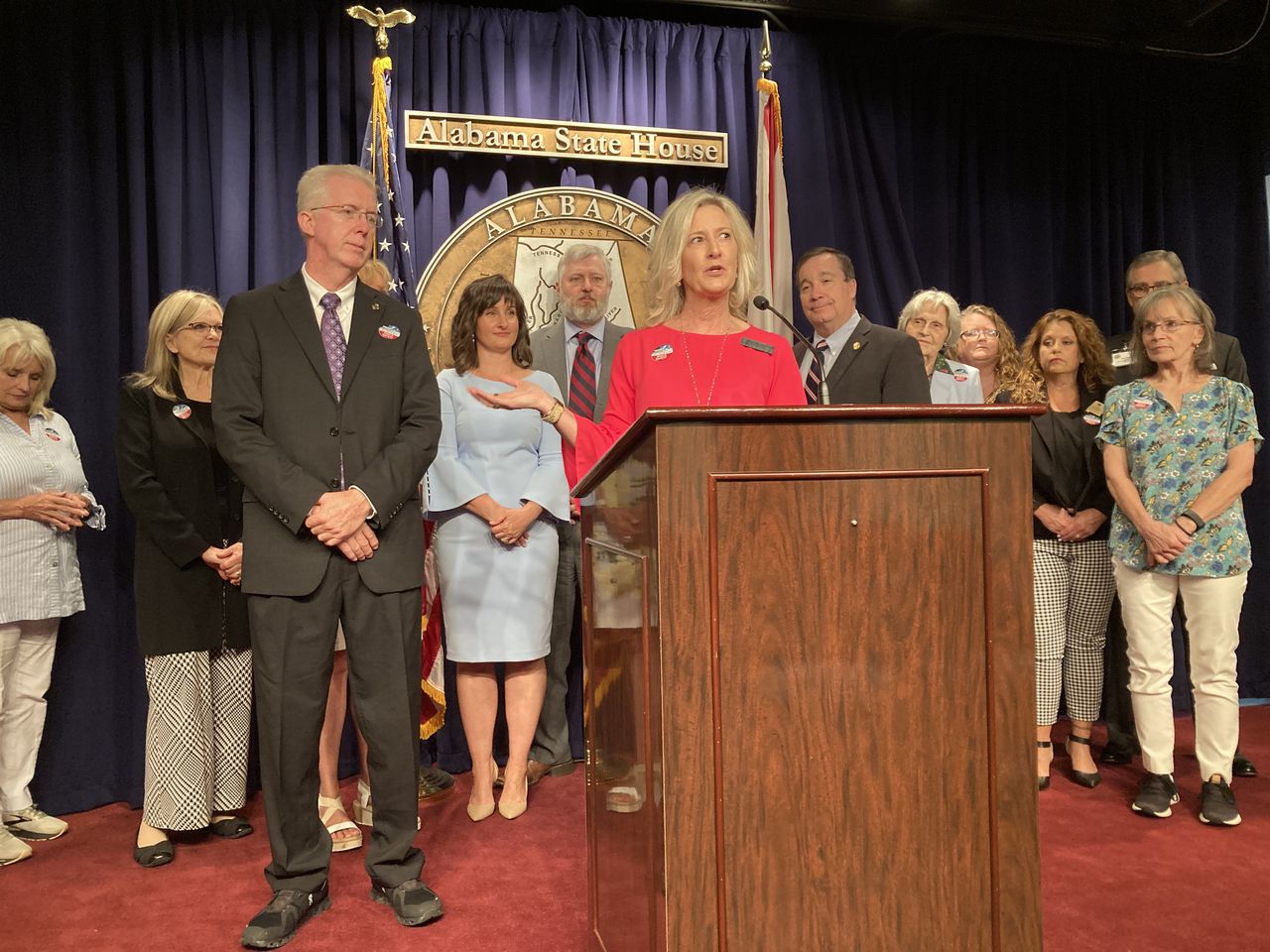Bill to require activated porn filters on cellphones gets late push
A bill to require cellphone and tablet manufacturers to make devices that automatically activate porn filters when the devices are turned on in Alabama is getting a late push in the Legislature.
Lawmakers, advocacy groups, and individuals supporting the bill spoke at a news conference today and urged the Senate to consider the bill during the final three days of the annual legislative session.
HB298 by Rep. Chris Sells, R-Greenville, has already passed the House.
“This one simple step, we can protect hundreds of thousands of children in Alabama,” Melea Stephens, a licensed professional counselor in Birmingham, said. Stephens said she had seen first-hand the lasting damage that early exposure to hard-cord pornography does to children.
Supporters of the legislation said devices such as iPhones, Android phones, and tablets already have filters for pornography but that when purchased they are set in a default position so that the filter is inactive. Becky Gerritson, executive director of the Eagle Forum of Alabama, said activation takes multiple steps and is confusing.
Greg Davis, executive director of ALCAP, which lobbies the Legislature on behalf of churches, said early exposure to porn increases the likelihood of porn addiction, which is profitable for the porn industry. Davis said pastors and churches understand the problems caused by porn addiction because families come to them for help.
During a public hearing in a House committee in April, lobbyists representing the telecommunications industry said they supported efforts to protect children from pornography but did not think an Alabama-specific mandate on devices made for worldwide distribution was a practical solution. They noted that parents already have access to filters and suggested more restrictions on porn websites, such as age requirements for viewers.
Sells, the bill sponsor, said it would not be impractical for manufacturers to change GPS settings so that the filters automatically activate when turned on in Alabama. He said devices already carry settings that vary based on geographic location. The bill says that users would be able to use a password to unblock a filtered website.
A lobbyist for the entertainment industry said at the public hearing last month that the bill would be unconstitutional because standards of obscenity vary by community and a single filter setting could not account for that.
Eric Johnston, an attorney for the Southeast Law Institute, said today the bill would not be unconstitutional because the material harmful to minors is not protected by the First Amendment.
Two weeks ago, the House passed the bill by a vote of 70-8, with 24 abstentions, and it has 59 co-sponsors. Sen. Will Barfoot, R-Montgomery, said momentum is building for the bill, but only three days remain in the legislative session.
“Hopefully we’ll get a vote on the Senate floor,” Barfoot said.
